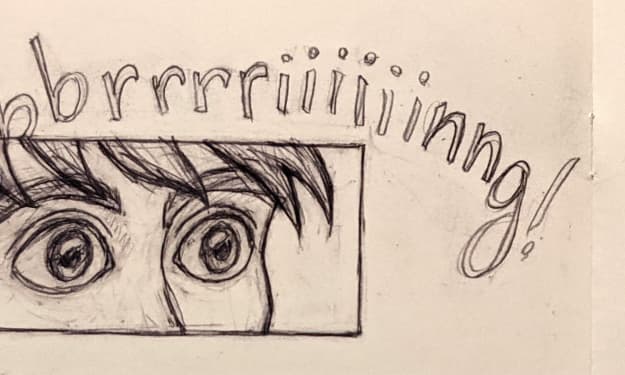submerged in honey
an excerpt about family secrets

This is an excerpt from my novel, Moonchildren.
Click here to read more.
_____________________________
It wasn’t always like this, but trauma changes people. The responsibility of a middle child is to mediate and obey, and at some point, this becomes second nature. The oldest does everything first: learns to read, rides a bike, graduates - so that, by the time the second child completes these same things, no one is excited anymore. For four years after her birth, Anika was the youngest.
It wasn’t always like this. In 1976, when Anika’s parents came home from the hospital with a baby boy, she doted on him. It was like this for many years. Every parent has a favorite child: even the ones who insist they love all their children equally. Growing up, the only way Anika got noticed was by acting out. She knows what they say. Bad attention is better than no attention at all.
Pim didn’t look like the rest of the family. Because of this, and because he was the only boy, he was coddled. Strangers would stop him on the street to say he was beautiful, or to ask for a photograph, as though he were a sideshow at a circus. From the time he was old enough to walk, he followed Anika around, because he simply never fit in anywhere else.
“You’ve always been so popular,” he’d say, looking like a ghost. “I want to be popular too.”
Pim used to call her Stinky. She complained about this all the time, and he never cared.
On the table inside the front door, there’s a small manila envelope that Juno brought home with her. Anika always knew about the letter. It’s undated, like everything Pim wrote. Though it was given to her with the rest of his things, she never had much use for it. In his teenage years, Pim kept a journal, and Anika teased him for this. “No one in real life ever listens to me,” he told her once, “so a paper and a pencil is all I have.” After his death, the journal was given to Anika with the rest of his things. Fearing the things he might have written about her, she never read it.
Family relationships are complicated. Verena was distant and bossy, believing anybody younger than her to be incompetent and in need of guidance. Pim was a golden child who blamed his bad behaviors on Anika, and always got away with them. Before he was born, she got away with things too.
The last time Anika spoke to her brother, she was pregnant with her third child. Very early in the morning, when she was having trouble sleeping, he called her on the phone.
Pim liked nature, poetry, rain, and conspiracies. He was a kind and gentle man. Anika ruined him, all for a little stupid fun. Things were never supposed to happen the way they did. The most perfect-seeming families harbor the darkest secrets. After a while, she couldn’t bear to look at her brother at all.
All Ivo ever did was remind Anika of her mistakes. When she met him at the airport, he looked like the little boy who woke her up in the middle of the night, saying that he’d had a bad dream. He looked like the teenager whose eyes rolled at random, who fell asleep in the middle of conversations. It wasn’t always heroin. Pim looked up to Anika. She was his biggest bully. She’s seen many memories in Ivo over the years. Memories aren’t always something worth remembering.
“I’m clean now, Stinky. I have a kid, and I got clean for him.” She was never sure what went wrong. He was well, and then he wasn’t. “If anything ever happens to me, I want you to take him. Would you do that?”
Anika was nineteen when she first tried opium. No one ever knew this about her, except Pim.
“Why would you want me to take him? I’m the reason you had to get clean in the first place.”
All the best parents doubt themselves. That’s what they say, anyway. If your parents raise you and do their best to give you a good life, the least you can do is be appreciative. Pim always wanted to be a parent. He was never in the right state of mind to do this well.
“Because you’re my best friend, Stinky, and I’d want him to go to someone I love.”
Nobody ever wants to die. The thing about Pim was that he would have done anything to give his child the chance to have a father, even if it meant living in misery. He wasn’t always paranoid and cynical, after all. As a preteen, he confided secrets to Anika that no one should have known, least of all her. When she got older, she realized he had no one else to confide in.
You can’t tell this to anyone, but he touched me somewhere he shouldn’t have. The physician. When I was there yesterday. If I ever have a son, I’ll never make him visit the doctor.
Anika wasn’t always a religious woman. In secondary school and college, she was known for the parties she threw when her parents were out of town, and the elaborate stories she told to prevent them from finding out. In the early nineties, she moved to America after a year of college, and she left her party days behind her.
“Come on, I thought you wanted to be popular.”
At one of her last parties in the Netherlands, Anika teased her brother for his aversion to taking risks. He followed her around, never having been to a party before, but desperately wanting to meet new people. Pim was sixteen when Anika dangled a bag of opium pills in front of his face, sticking her tongue out at him.
“If you want to be popular, you have to do what all the popular kids do. Take some pills. Come on, don’t be a little bitch.” Anika never had a drug problem. She got high for fun, once or twice, and then she grew up. Pim was insecure and depressed, and deeply desperate for acceptance. This made it easy to get under his skin. At the end of the night, he was the one who asked for a bag of his own. It was never meant to kill him. After speaking to him on the phone about his toddler, she never spoke to him again.
Anika met her husband when she was twenty one, and married him three years later. Mark was in his forties: going gray, and he paid attention to her in a way no man had done before. He never met her siblings, and she has no plans to return to her home country. The moment Anika crossed the border into the United States, she left her old life completely behind, never to be spoken of again.
It was very late when she received a call from a private number. They say, when you’re close to someone, you can feel when something has gone wrong, even if you’re miles away. Funerals are for the living, Aspen said once. The dead aren’t the ones who need to be comforted.
“If anything ever happens to me, I know you’ll love him like you love your own kids. You’ll do that for me, right, Stinky?”
God, he’d be so disappointed in her.
“I don’t want to grow up to be like Papa,” Pim said as a teenager, lying on Anika’s bedroom floor, keeping her company when she put on makeup for a party. He didn’t elaborate on this, but she knew what he meant. Anika always believed herself to be unique and intelligent. In her twenties, she began hearing her father when she spoke. “I feel sad all the time, and Papa says I have to be strong and tough, and sometimes I don’t want to.”
“Maybe Pa’s right,” said Anika, “maybe you should man up a little. Life is not that bad.”
Haven’t you ever had a big regret? Something that you did in the spur of the moment, or out of anger, that you’d give anything to take back?
If you don’t acknowledge your mistakes, they can’t hurt you. If you don’t admit your mistakes to anyone, nobody can use them against you.
Since coming back to Alaska, Juno has moved back in with her parents. She says she feels safest here, but rarely ventures out of the house. She looks healthy and refreshed one day, and very tired the next. When Anika asks Juno about her time with Verena, she receives aloof and impersonal answers. The other children don’t visit, and rarely respond to her texts. Mark says give them space, as though a mother deserves to be ignored. You can put your whole life into someone and get nothing in return.
“You should probably mail that.”
Juno sits in the kitchen, nibbling on a fruit bowl. She used to hate fruit. “That envelope. It wasn’t for you to keep.” Children grow up so unpredictably. Before being taken, Juno was naive and timid, and in need of Anika’s protection. She’s no longer timid. She seems like a stranger.
“If you don’t mail it, I will.”
“Take it home with you and deliver it.”
There are relationships worth salvaging. There are others worth cutting off and never speaking of again. Most people struggle to know which is which. Anika is smarter than her parents gave her credit for. Maybe, if she hadn’t had to compete with her sister all her life, she would have turned out differently. Growing up, the thing she argued with Verena most about was her bossiness. Anika was always second-best: expected to be as smart as Verena, as accomplished, as organized. She never was.
Like anyone, Anika has done things she regrets. Perhaps the guilt would lessen if she repented. Perhaps she’d feel better after praying and attending mass, like a good religious woman. The first time Anika stepped foot in a church, she was twenty one years old. After this, she never really left.
Juno blinks. Her head is still shaved, and it makes her look like a boy. “Ivo doesn’t live with me. He hasn’t for months.”
Anika has never cared much for her nephew. She tries to get along with him, but she has little patience for disrespect, and he’s too different from his father. “Where does he live, then?”
“I dunno.”
“Well, that’s helpful.”
“I’ll ask Aspen.” Juno finishes her plate, stands to put it in the sink. “She would know. Ivo doesn’t have a phone, anyway.” She sits back at the table, scratching her bald head with chewed fingernails. “If you want to contact him, you have to call Rio.” Anika doesn’t know this name, and doesn’t care to ask. Juno looks at her for a long time, saying nothing. She doesn’t look like a little child anymore.
“Have you ever done drugs before?”
It’s warm. Being reminded of her sins makes Anika feel dirty. “Why would you ask me that? Do you think that’s an appropriate question to ask your mother?”
Juno was always the smartest of Anika’s children. Despite this, she makes stupid decisions. “I’m just wondering.” Juno rests her elbows on the table, showing off her bad etiquette. “I’m not going to judge you if you have.” She’s heard things from her aunt that are not hers to know. No one is as innocent as they seem. “It’s okay to make mistakes, you know,” Juno says, looking Anika in the eyes. She speaks as though she’s an old woman with a lifetime behind her. “But you can’t let them control you for the rest of your life.” She knows nothing about the lives of her parents. Anika prefers it this way. Juno died briefly, and now she thinks she’s omniscient.
“This is all your fault,” Verena shouted, the last time she spoke to Anika on the phone. It was years ago, when Aspen was a baby, long after Anika had forced herself to forget about life in Europe. “If you hadn’t let him come to that stupid party, he would never have turned out like this.”
What kind of human abandons the person they love the most? It’s the coward’s way out, and the coward isn’t worthy of forgiveness. The only way to make up for your sins is to dedicate the rest of your life to doing well and serving.
He asked me for money again. He said he and the baby are getting evicted again.
It wasn’t always like this. Pim could have become a writer, or an artist, or a traveler. This is where he was supposed to end up. Juno walks noiselessly down the hallway like a wraith, shutting the door of the bedroom quietly. She’s left the manila envelope on the table; Anika takes it. She could read its contents. They were never meant for her to see.
Down the road is the mailbox where Anika picks up the mail. When she returns from her bedroom, there are words on the envelope: an address, scribbled in Juno’s messy printing.
She owed her brother. No matter how badly Ivo behaved, she couldn’t break a promise.
It’s sunny. After standing still in front of the mailboxes for several minutes, Anika sighs and drops the envelope inside, listening to it fall.
About the Creator
ghostsandrebels
i'm a a queer writer, poet, cat lover, and author. i'm passionate about psychology, human rights, and creating places where lgbt+ youth and young adults feel safe, represented, and supported.
29 | m.
follow me on threads for more.






Comments
There are no comments for this story
Be the first to respond and start the conversation.